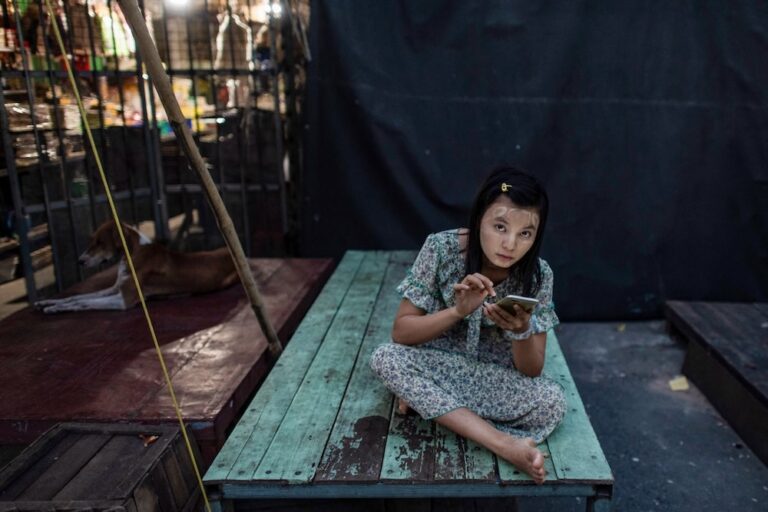(RSF/IFEX) – Reporters Without Borders and the Burma Media Association are outraged by the measures adopted by the military junta to prevent journalists and activists covering the on-going crackdown on protests. Most of the country’s mobile phone lines have been cut and the Internet network has been drastically reduced. Charges by police and troops on […]
(RSF/IFEX) – Reporters Without Borders and the Burma Media Association are outraged by the measures adopted by the military junta to prevent journalists and activists covering the on-going crackdown on protests. Most of the country’s mobile phone lines have been cut and the Internet network has been drastically reduced. Charges by police and troops on demonstrators in Rangoon, especially near the Shwedagon pagoda, have reportedly left several dead, while dozens of people have been arrested and injured.
“The generals have not hesitated to use force to repress peaceful demonstrations widely reported in the international press,” the two organisations said. “Knowing it is protected by China and the international community’s impotence, the junta has cut the country off from the rest of the world in order to better crush the nascent saffron revolution. We appeal to the international press to step up its coverage by trying to get journalists into the country so that this dramatic situation is not played out behind closed doors.”
On 26 September 2007 at 3 p.m. (local time), the military authorities disconnected most of the country’s mobile phone lines, preventing journalists and demonstrators from reporting on the crackdown launched by the security forces in the heart of Rangoon. Several journalists have been injured including Than Lwin Zaung Htet of the magazine “The Voice”.
The authorities have closed Internet cafés in Rangoon while the government-controlled Internet service provider, Bagan Cyber, reduced Internet traffic speed. It is getting harder and harder to send or receive photos and videos from Burma. Dozens of foreign journalists have been refused tourist visas by the Burmese embassy in Bangkok.
Burmese blogs, websites and Internet cafés have been closed for several days, while it is becoming increasingly difficult to call Burmese mobile phones from abroad, especially to Ba Maw, Mandalay and Myitkyina. Khin Mar Lar, the wife of journalist and former political prisoner Nyein Thit, was arrested at her Rangoon home on 25 September 2007 when police were looking for her husband with the intention of arresting him (see alerts of 4 January 2007 and 18 October 2004).
A group of journalists and intellectuals, the Burma Literary Association, launched an appeal on 24 September for the release of political prisoners and for national reconciliation. Despite the threats from military censors, they added their voice to the protest movement by Buddhist monks. Created on 20 September, this organisation recalls a similar one set up during the 1988 protests. One of its initiators, journalist U Win Tin, has been imprisoned since July 1989 (see IFEX alerts of 4 July 25 January 2007, 5 July 2006, and others).
“We know this will be a difficult battle, but the brutal dictatorship’s power has been challenged by another power, the power of love, and it is this power that will win the day,” said Reporters Without Borders and the Burma Media Association.
The military junta imposed a curfew on Rangoon and Mandalay on 24 September and banned gatherings of more than five people.


